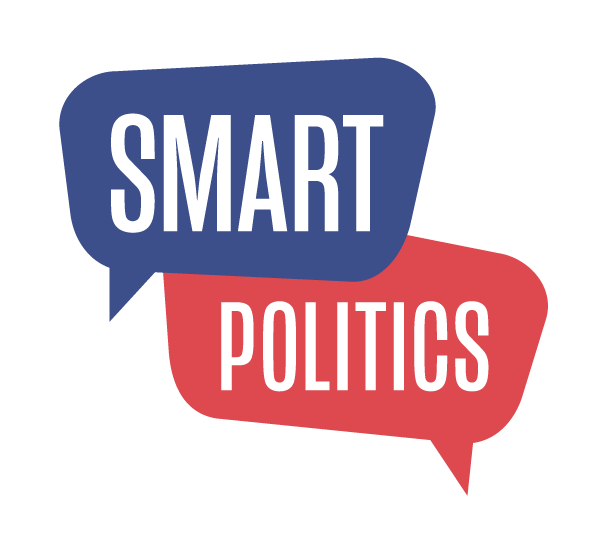What We Do
New to Smart Politics?
No problem! Let’s get you get started by answering some of your biggest questions.
What is Smart Politics?
Good question! We’re a group of Democrats, liberals, and other Left-leaning types who are trying to save the world by changing how we communicate with people who disagree with us, including Republicans, far-Right extremists, and MAGA supporters.
If you’re having trouble talking to friends and loved ones (or strangers!) about your political views; if you feel nothing will change their minds; if you’re frustrated by the slow pace of progress toward economic, social, and environmental justice, Smart Politics can help.
Is Smart Politics a nonpartisan bridge-building organization?
No. Groups like Living Room Conversations and Braver Angels that bring Republicans and Democrats together to talk are great, but that’s not what Smart Politics does. We’re a progressive advocacy group committed to promoting social, economic, and environmental justice. Instead of hosting conversations between people who disagree, we give you skills for talking with Republicans and other Right-leaning folks in your natural habitat.
That said, we consider ourselves “bridgers” in the sense that we’re fully committed to the cause of political depolarization and support all efforts to bring folks on the Left and Right together for dialog because that’s in the best interests of the Progressive movement and the nation.
Why should I join Smart Politics?
There are two big reasons to join Smart Politics and learn our methods.
First, you want to make a difference. If recent years have taught us anything, it’s that our republic is fragile. It’s not enough to win elections or pass legislation, we also need to persuade people who disagree with us that we’re not the enemy and that progressive change is in the best interests of all Americans. We can help you do this by giving you the skills to stop arguing, stop avoiding, and start making a difference.
Second, your relationships may be suffering as a result of your current communication style. Smart Politics won’t just teach you how to be a more powerful advocate in conversations with people you disagree with; we will also show you how to strengthen your relationships with people who are close to you but have different beliefs. You don’t have to choose between staying connected to the people you care about and promoting what you believe. In fact, the two are synergistic, not antangonistic.
How is Smart Politics better than what I'm already doing?
If you’re like most people, you probably talk about politics the way you were taught in school: Make an argument based on reason and evidence. While this method is great for term papers and convincing impartial judges and juries, it’s lousy for persuading people who are already convinced you’re wrong. This is especially true in today’s highly polarized political climate where arguing with people on the Right not only doesn’t work, but amps up animosity and drives them in the opposite direction.
Smart Politics helps you approach the problem in a more effective way: Build a trusting and respectful relationship so the person you’re talking with will want to hear what you think; and create a conversation space that fosters curiosity, empathy, rationality, and self-reflection so they will learn and grow.
If reason and evidence don’t work, how can I change people’s minds?
Here’s the secret: You can’t. The only one who can change a person’s mind is that person themselves. Persuasion isn’t about changing others’ minds so much as about making it easier and more desirable for them to change their own.
That’s done through conversations that encourage folks to be more rational, compassionate, self-reflective, and curious. It also means shifting our conversational style from adversarial to collaborative; from a debate club approach to something a bit more like talking with your favorite teacher, wise elder, most understanding friend, therapist, or pastor.
So is this group about reaching out to racists, transphobes, misogynists, homophobes, and other haters?
Sort of, but not the way you’re thinking. We teach progressives to reach out to everybody we disagree with, regardless of who they are, what they believe, or what their reasons. That means, if you want, we’ll give you the skills to talk with people who hold ideas you abhor in a way that leads to opinion change.
But make no mistake, this does not mean we tolerate hate speech, put up with abuse, or compromise our values. Smart Politics is about treating all human beings with respect and decency, not meeting racists halfway or hugging Nazis.
I’m a member of a historically-marginalized group. Are you saying I should talk with people who hate me or may even want to hurt me?
No. Definitely not. You’re in no way obligated or expected to put yourself in physically or emotionally dangerous situations.
Smart Politics is for everyone, but it primarily leverages the power of people with privilege in conversations with peers (white people talking with other white people, straight people talking with other straight people, men talking with other men, and so on). This is both because people are more likely to be influenced by those who are like them and because the less privileged of the world have enough to worry about without also having to persuade people of higher privilege that systemic oppression exists and should stop.
So, as a member of Smart, you’re encouraged to talk with peers, but it’s up to you whether you want to engage beyond that. Of course, if you want to take on the far more difficult challenge of talking with higher privilege people too, we can help you do that as well.
What if I don't know anyone who disagrees with me?
Not a problem. There are lots of ways to meet people who hold different beliefs and have an influence. Our founder, Karin Tamerius, started Smart Politics while living in Berkeley, the most liberal city in America. At the time, she didn’t know anyone who disagreed with her either so she got to know people with different beliefs on social media.
How does Smart Politics grow the movement for change?
We take our cue from Abraham Lincoln—”I destroy my enemy when I make him my friend.”
Unlike most progressive organizations, Smart Politics isn’t focused on defeating Republicans. Rather, we’re committed to persuading people we disagree with to join our movement (or at least not hate it so much). That means shifting the political spectrum from Right to Left by reaching out to the citizens closest to us–our family, friends, co-workers, neighbors, and so on.
Affect a single mind by way of effective conversation, make one enemy a friend, and you’ve grown the larger movement.
Are selfish, evil, racist Republicans really going to change?
Woah there! We’ve clearly got some work to do here. Remember what Malcolm X said, “Don’t be in a hurry to condemn because he doesn’t do what you do or think as you think or as fast. There was a time when you didn’t know what you know today.”
The Smart Politics project is based on the idea that political attitudes and behavior are a result of environment, not character; and all people–even those whose ideas and behavior you abhor–are capable of changing their opinions when external influences shift. We can facilitate this process of change by initiating and creating space for more rational, compassionate, self-reflective, and curious dialog that make it easier for people we disagree with to hear what we have to say and learn.
So to answer your question, yes! Smart Politics conversations really do change minds. Not all at once, maybe not in a big way at first, but over time, remarkable things happen. Like a tiny acorn turning into an oak. In the beginning it’s impossible to imagine the transformation that’s possible, but if you plant it, tend it, and give it time, eventually you have a tree.
How is talking with my angry, MAGA-hat-wearing uncle going to help?
Despite recent anti-democratic trends within our political system, the ultimate power to determine the future of our nation still resides with ordinary people, not parties or politicians. That’s why Smart Politics starts there—with the person at your dinner table, in your work group, on social media, or with your angry uncle.
And since we’re all a part of a complex political ecosystem of intertwined social relationships, when we influence one person we inevitably influence others as well. As Mother Teresa said, “I alone cannot change the world, but I can cast a stone across the waters to create many ripples.” When you change the way you talk with your uncle about politics, you create political ripples that influence others as well.
Why are we talking about persuasion? Shouldn't we just focus on turnout?
Yes, we need to turn out our base, but progressive politics is bigger than elections. Winning the presidency and maintaining control of Congress are important but they aren’t enough for enacting sweeping legislative change. To achieve lasting economic, social, and environmental reform–reform that won’t be undone every time government changes hands–we need to persuade Americans from all walks of life that our policies are in their best interests too.
Why will Smart Politics work when nothing else has?
If you’ve tried and failed to change Republican minds in the past, it’s easy to feel discouraged and doubtful that any approach can make a difference. But you can be confident Smart Politics will work for you because the persuasion philosophies and conversation methods we teach are based on real science–social psychology, political science, neuroscience, cognitive psychology, psychotherapy, and more. Our approaches may sound counter-intuitive if you’ve soaked too long in a polarized, conflict-driven environment, but they’re proven to work.
I'm in! How do I get started?
- Join our mailing list for news and updates
- Read more about how we do our thing
- Attend a workshop, webinar, or training session
- Donate on Patreon
- Join the conversation in the Smart Politics Facebook group
And most important….
- Start talking with people you disagree with!


